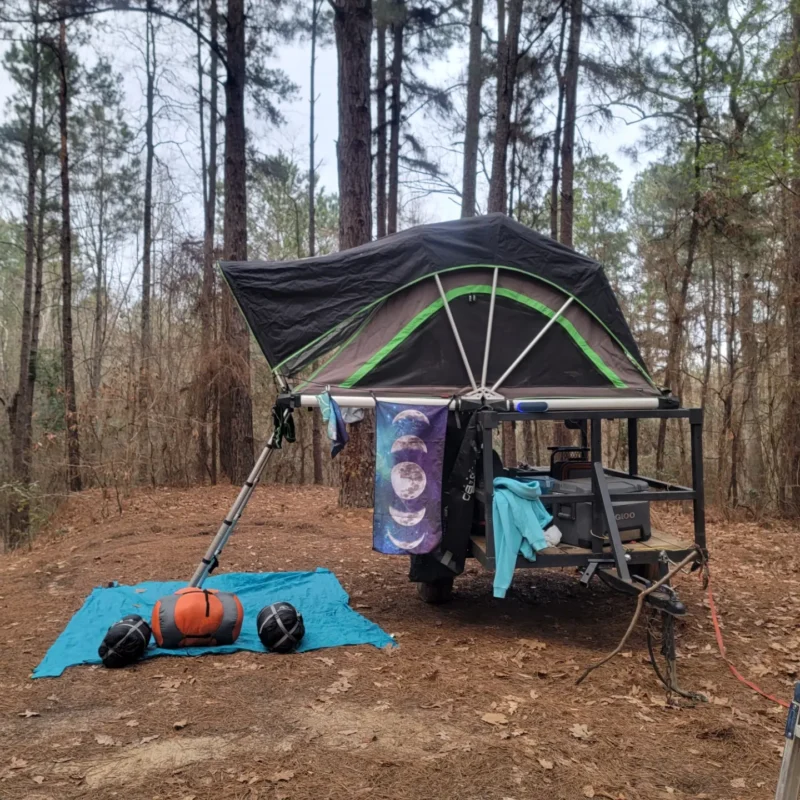
Thinking about going camping in the wilderness? Wilderness camping offers a chance to escape the hustle and bustle, but it requires preparation. Here’s your ultimate guide…
What is Wilderness Camping?
Wilderness camping, also known as backcountry camping, involves camping in remote, natural areas away from established campgrounds and facilities. Getting to these remote sites often means hiking in and out with all supplies on your back. Most people will stay in a tent, but lean-tos and hammock camping are also options.
Key Things To Know Before You Go
- Location: Wilderness camping typically takes place in undeveloped areas such as forests, mountains, or deserts. These locations are often far from roads and amenities.
- Self-Sufficiency: Campers must bring all necessary supplies, including food, water, shelter, and first aid. There are no facilities like restrooms or running water.
- Leave No Trace: It’s crucial to follow Leave No Trace principles, which include packing out all trash, minimizing campfire impact, and respecting wildlife.
- Navigation Skills: Good navigation skills are essential, as trails may be poorly marked or there could be no signs.
- Permits: Some wilderness areas require permits for camping, so it’s important to check regulations beforehand.
How To Make It A Great Experience
- Plan Your Trip: Whether it’s your first or hundredth trip, planning is crucial. Conditions can change rapidly in the wilderness, so research your destination, weather, and terrain. Know the rules and regulations for camping permits.
- Choose Your Campsite Wisely: Camp where permitted. Look for flat ground away from water sources to avoid flooding. Consider wind direction and sun exposure when pitching your tent.
- Pack Smart: Pack essential gear, including a tent, sleeping bag, stove, food, water filter, and clothing appropriate for the weather. Don’t forget a first aid kit, map, and compass.
- Weather Awareness: Be prepared for bad weather. Bring rain gear, extra layers, and a waterproof cover for your backpack. Check the forecast before you go.
- Pitch Well: Set up your tent properly. Clear the ground of rocks and debris. Use stakes and guylines to secure it against wind.
- Source Water Safely: Find reliable water sources. Use a filter or purifier to avoid waterborne illnesses. Always carry enough water or know where to find it.
- Fire Safety: Be smart with fires. Follow local fire regulations. Use established fire rings if available. Keep fires small and controlled.
- Wildlife Awareness: Respect wildlife. Store food securely to prevent attracting animals. Know how to react if you encounter wildlife.
Wilderness camping gets you off-grid and closest to nature. It offers you a unique opportunity to connect with your surroundings and others or to enjoy some solitude. Have you ever tried it or are you planning a trip?
